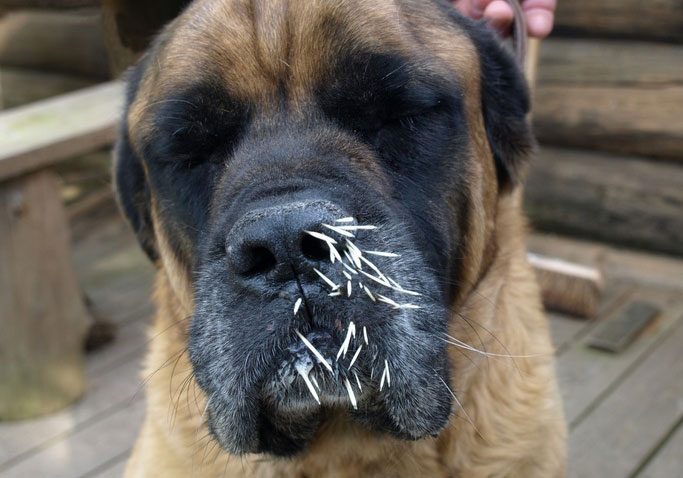Acute Allergic Reactions in Pets – What to look for and treatments available
Has this ever happened to your pet? It’s a lovely spring day when you and Fido are out planting the flowers in the garden. Naturally Fido is curious about the interesting things around him – old grass, bark, twigs, and OH WOW – a yellow flying thing that buzzes! Looks like THAT thing should be eaten right away! Next thing you know his face is double the size and he looks like a walking cartoon caricature.

Allergic reactions in pets are a common concern. The majority of reactions occur in dogs, but occasionally cats are affected as well. Interestingly, certain breeds of dogs such as Boston Terriers, Boxers, and Dachshunds, (to name a few) are more susceptible. An allergic reaction can be caused by any number of things including; insect bites, plants, pollens, dust, molds or foods to which that particular animal is overly sensitive, medication, and injections. Unless the offending item or insect is actually SEEN being ingested or biting the animal, often the underlying cause of the allergic reaction remains a mystery.
Allergic reactions can range from mild (hives, swelling) to severe (anaphylaxis – vomiting, difficulty breathing, shock). Symptoms most often seen are signs of facial swelling, especially around the eyes, lips, muzzle and sometimes the ears. Often there is pronounced itchiness accompanying the swelling. Another symptom can be “hives” under the skin which are small localized swellings over the majority of the body, and these may or may not be itchy. Fortunately, anaphylaxis, where the animal goes into shock and can be life threatening, is rare. Vomiting, staggering, and/or difficulty breathing can be an indication of a serious reaction occurring, therefore it is important to contact your veterinarian immediately should you observe any of these symptoms.
Any time an allergic reaction is suspected, treatment at a veterinary clinic is recommended to stop the swelling and make the animal more comfortable. Prolonged swelling and itchiness can lead to self-trauma and infection. Depending on the severity of the allergic reaction, a variety of medications may be administered. Typically, the prognosis is excellent for slowing/stopping the progression of the swelling and getting things back to normal.
Prevention can be quite difficult, unless a specific allergen known to have caused a reaction in the past is avoidable. Fortunately rapid treatment by your veterinarian is usually quite successful in managing these unfortunate incidents.
Recommended Posts

Porcupine Quills in Dogs … Oh My!
July 09, 2017

Obesity in Pets
January 11, 2017

Senior Pets – Ways to Help Fido in His Later Years
June 08, 2016

